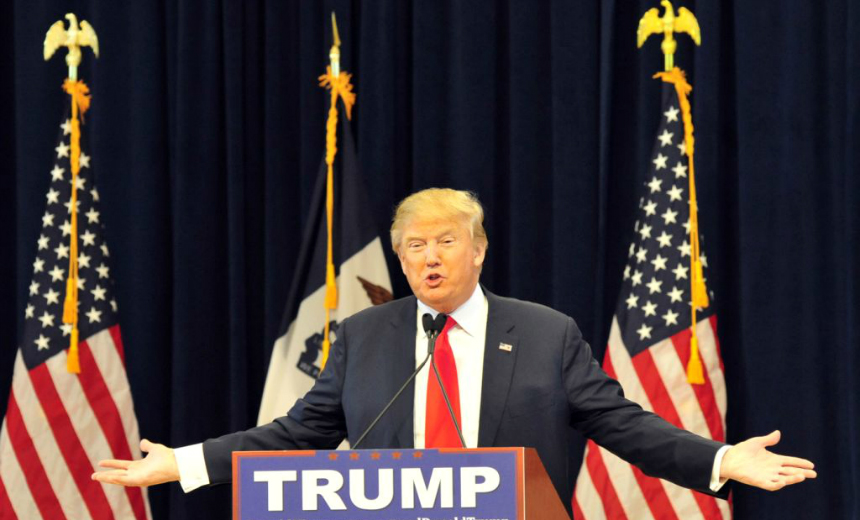 President-Elect Donald Trump
President-Elect Donald TrumpPresident-elect Donald Trump will review the nation's cyber vulnerabilities at the start of his presidency, just like Barrack Obama did. But Trump hasn't demonstrated the deep understanding of cyber that Obama did when he took office nearly eight years ago.
See Also: Forensic Files: Inside a Mock Breach Investigation
Trump didn't spend much time speaking about cybersecurity on the campaign trail - neither did Hillary Clinton. But his most coherent remarks came in a September speech on national security delivered in Philadelphia, in which he read off a teleprompter his plans to defend U.S. digital assets. In that speech, Trump said that upon assuming office, he would order an immediate review of all U.S. cyber defenses and vulnerabilities, including critical infrastructure, by a cyber review team of individuals from the military, law enforcement and the private sector.
That's reminiscent of when Obama initiated a wide-ranging cybersecurity review weeks after taking office in 2009. That review, led by senior White House cybersecurity adviser Melissa Hathaway, produced a 10-point cybersecurity action plan unveiled by President Obama in May 2009 (see The President's 10-Point Cybersecurity Action Plan).
In an October speech to a veterans' group, Trump provided more details on his plan, including having his cyber review team provide specific recommendations for safeguarding different entities with the best defense technologies tailored to the likely threats (see Donald Trump Unveils His Cybersecurity Platform). He said the team would establish detailed protocols and mandatory cyber awareness training for all government employees while remaining current on evolving methods of cyberattack.
Cybersecurity Platform
According to his cybersecurity platform posted on his campaign website, the president-elect proposed:
Instructing the Justice Department to create joint task forces throughout the U.S. to coordinate federal, state and local law enforcement responses to cyberthreats; Ordering the defense secretary and chairman of the Joint Chiefs of Staff to provide recommendations for enhancing U.S. Cyber Command, with a focus on offense and defense in the cyber domain; and Developing the offensive cyber capabilities needed to deter attacks by both state and non-state actors and, if necessary, to respond appropriately.Nation-State Threats
In the October speech, Trump acknowledged the threats posed by foreign governments, "especially China, Russia, North Korea along with non-state terrorist actors." Including Russia proved interesting. During the campaign, he praised Russian President Vladimir Putin as a strong leader, and when U.S. intelligence services blamed Russia for attacking Democratic Party information systems, Trump refused to accept those appraisals.
A week earlier, in a debate with Clinton in which she blamed Russia for the hacks, Trump responded: "She's saying Russia, Russia, Russia. Maybe it was. It could also be China, it could be someone sitting on their bed that weighs 400 pounds."
Trump has said to "truly make America safe, we must make cybersecurity a major priority, which I don't believe we're doing right now, for both government and the private sector."
Trump is wrong on that point. Obama since the beginning of his administration has made cybersecurity a priority, and the president has worked with Congress - including Republicans - and business leaders to strengthen cyber protections for the government and the private sector. Despite those efforts, cyberattacks have plagued the government and private sector. But those attacks don't mean cybersecurity isn't a priority for Obama. Cybersecurity, as we know, is hard.
Rambling Thoughts
There's little doubt that Trump is aware of the dangers in cyberspace, and it's reassuring he says cybersecurity will be a priority. But it's not clear whether he really understands the cyber threat. In impromptu remarks in September, Trump rambled on about cybersecurity (see Does Donald Trump Understand Cybersecurity?):
"Cyber is becoming so big today, it's becoming something that a number of years ago, a short number of years ago, wasn't even a word. Now the cyber is so big. You know you look at what they're doing with the internet, how they're taking, recruiting people through the internet. And part of it is the psychology because so many people think they're winning. And you know there's a whole big thing. Even today's psychology, where CNN came out with a big poll, their big poll came out today that Trump is winning. lt's good psychology."

